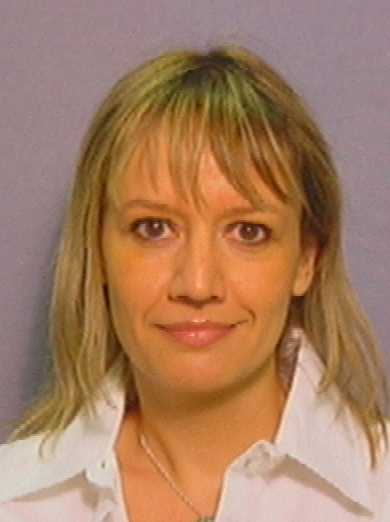Interview with Doris-Eva Bamiou
Cite this article as: BJMP 2011;4(3):a426
|

Doris-Eva Bamiou is a Department of Health HEFCE funded Senior Lecturer at the UCL Ear Institute, and Consultant in Audiovestibular Medicine at the National Hospital for Neurology and Neurosurgery. She is also Honorary Consultant at the RNTNE Hospital and Great Ormond Street Hospital. She sees both adults, with vertigo, hearing problems or auditory processing disorders, and children with auditory processing disorders and complex communication needs in her clinics. She works in an academic, multidisciplinary environment.
After completing specialty training in ENT in Greece, Ms Bamiou trained in Audiological Medicine in the UK. During her training, she spent a three-month fellowship in Professor Musiek’s department in the States (on a stipendium from Professor Musiek and a grant from the TWJ foundation), where she trained in the diagnosis and management of patients with auditory processing disorders. Her PhD degree is onauditory processing in patients with structural brain lesions.
She is Director of the MSc in Audiovestibular Medicine at UCL. In addition, she has been Director and Organiser of the Current Trends in Auditory Processing Disorders instructional courses for the past several years. She is immediate past Secretaryof the British Society of Audiology (BSA), and Chair of the Auditory Processing Disorders Special Interest Group of the same Society. She is adviser in Audiology to the JLO, and in the Editorial Board of the Audiological Medicine journal.
She has a keen interest in research. Interests include the aetiology of hearing loss, auditory processing disorders in the presence of other neurological conditions as well as in the normal population, auditory neuropathy, vestibular rehabilitation and overlap between psychiatric and vestibular disorders.
How long have you been working in your speciality?
I first became interested as an ENT trainee in Greece, in 1993. At the time I was at a paediatric hospital, and we did a lot of paediatric testing (distraction and ABR). In 1994 I moved to an adult hospital, where I came across and learned to test and manage adult patients with vertigo and hearing loss.
Which aspect of your work do you find most satisfying?
Solving clinical problems, teaching postgraduate students, designing research projects and interpreting research results give me equal satisfaction – I enjoy equally the patient/doctor or student/teacher interaction and the intellectual challenges.
What achievements are you most proud of in your medical career?
I set up the first adult clinic for patients with auditory processing disorders at the National Hospital for Neurology, and the first multidisciplinary clinic in this field, again at the same hospital.
Which part of your job do you enjoy the least?
Administration and form filling exercises.
What are your views about the current status of medical training in your country and what do you think needs to change?
I wonder whether trainees get enough proper training in their very early days on and whether the length of the training is sufficient for them to be able to function independently by the end of their training.
How would you encourage more medical students into entering your speciality?
We do Audiovestibular Medicine Taster days, and we encourage them to come and “shadow” us to see what it is really like.
What qualities do you think a good trainee should possess?
He/she should be kind, hard working, highly motivated to learn and able to develop independent thinking.
What is the most important advice you could offer to a new trainee?
It may be hard work training as a Doctor, but it’s all worth it!
What qualities do you think a good trainer should possess?
Amongst many other things, empathy, and the ability to teach each trainee at their own level.
Do you think doctors are over-regulated compared with other professions?
Not more than is required.
Is there any aspect of current health policies in your country that are de-professionalising doctors? If yes what shouldbe done to counter this trend?
I think it is difficult to reconcile managerial activities with a doctor’s role.
Which scientific paper/publication has influenced you the most?
Several. I tend to read a lot of papers for lectures etc so this changes every few weeks!
What single area of medical research in your speciality should be given priority?
I could not separate one more than others.
What is the most challenging area in your speciality that needs further development?
Rehabilitation (auditory and vestibular) of the patient with complex needs.
Which changes would substantially improve the quality of healthcare in your country?
More funding and more rationalized use of free NHS services, depending on the patient’s income.
Do you think doctors can make a valuable contribution to healthcare management? If so how?
Yes, by working closely and by educating managers.
How has the political environment affected your work?
Not at all.
What are your interests outside of work?
I read a lot of books of every kind, I go to the theatre and to art exhibitions.
If you were not a doctor, what would you do?
This will sound very boring. I would still like to be a doctor!

The above article is licensed under a Creative Commons Attribution-NonCommercial-NoDerivatives 4.0 International License.




